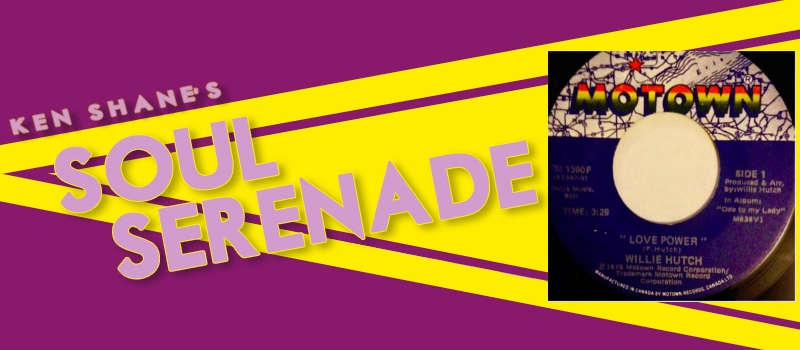 Now we know the truth. For years poets have written about it, and singers have sung about it. Today we know for sure that if we’re going to get through this, if we’re going to survive as a species, we’re just going to have to love one another. We have to pull our loved ones a little closer, and yes, reach out a hand to those with whom we don’t see eye-to-eye. I know the latter is not easy, believe me I know, but nothing less than our very existence is at stake.
Now we know the truth. For years poets have written about it, and singers have sung about it. Today we know for sure that if we’re going to get through this, if we’re going to survive as a species, we’re just going to have to love one another. We have to pull our loved ones a little closer, and yes, reach out a hand to those with whom we don’t see eye-to-eye. I know the latter is not easy, believe me I know, but nothing less than our very existence is at stake.
Willie Hutch knew a little something about the power of love. William McKinley Hutchinson was born in Los Angeles, and grew up in Dallas, where he was a member of a vocal group called the Ambassadors while he was in his teens. At the age of 20, he signed with Johnny Rivers’ Soul City label, and shortened his name to Willie Hutch. He released his first single, “Love Has Put Me Down,” in 1964.
It was the legendary producer Bones Howe who first took notice of Hutch. At the time Howe was busy turning out hits for the Fifth Dimension, and before long Hutch was writing, producing, and arranging for the group. Not satisfied with being behind the scenes, Hutch signed a new record deal with RCA in 1969, and released two albums for the label.
Motown Records came calling in the form of producer Hal Davis. Davis had written the music for a song called “I’ll Be There” which was intended for the Jackson 5. Lacking lyrics, Davis reached out to Hutch. The morning after Davis made that call, the Jackson 5 was in the studio recording the song, which of course turned out to be a huge hit. Berry Gordy, Jr. was suitably impressed and signed Hutch to produce, arrange, write, and play for the label.
During his time at Motown, Hutch co-wrote songs that were hits for not only the Jackson 5, but also Michael Jackson as a solo artist, Smokey Robinson, and Marvin Gaye. But Hutch still had the desire to record his own music, and in 1973 he recorded the Fully Exposed album for Motown, as well as recording and producing the soundtrack album for a blaxploitation film called The Mack.
Hutch sent some R&B hits up the charts during this time, including “Brother’s Gonna Work It Out,” and “Slick.” In 1974 Hutch released the soundtrack album for Foxy Brown. Six more Motown albums followed. One of those, 1975’s Ode to My Lady, included Hutch’s biggest single, “Love Power.” The record reached #41 on the Billboard Hot 100.
When famed producer Norman Whitfield left Motown in 1977, Hutch followed him out the door and signed with Whitfield Records, only to return to the Motown fold in 1982. That same year “In and Out” became a disco hit for Hutch. He also put two songs, “The Glow,” and “Inside You” on the soundtrack album for the film The Last Dragon. But the return to Motown wasn’t particularly fruitful for Hutch and he left the label again at the end of the ’80s.
By 1994 Hutch had moved back to Dallas, and was pretty much done with the music business. He was 60 years-old when he died in 2005.
Love power. The power of love. They’re not just words. Love each other. We’re all we’ve got.





Comments